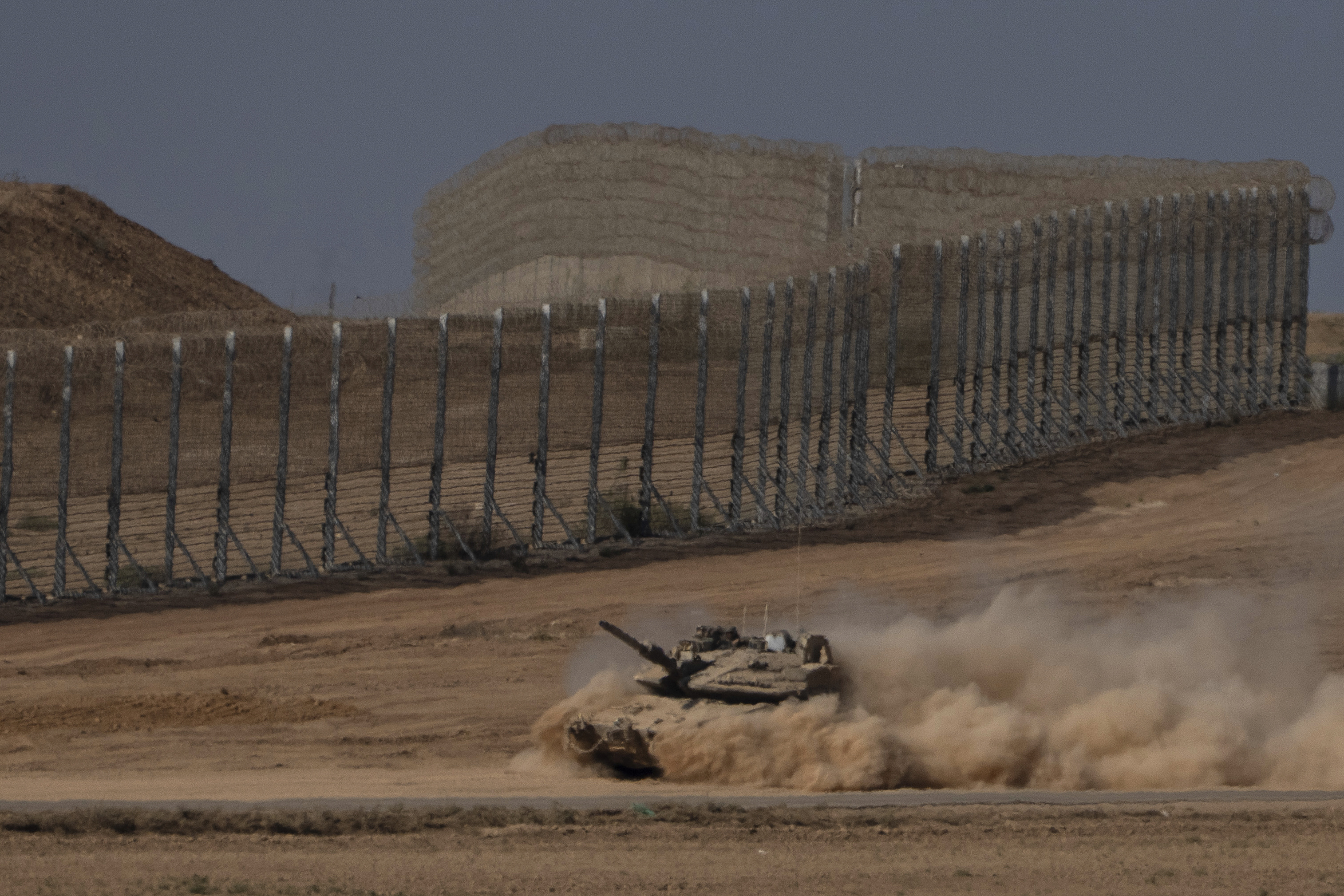
JERUSALEM/GAZA/CAIRO - Israel launched a new offensive on Gaza City on Wednesday aimed at defeating Hamas, a move that has drawn international criticism over its impact on civilians in the devastated enclave.
The IDF has begun the next stage of the operation, in line with "the directive of the political echelon," military spokesman Effie Defrin said. He said ground assaults were already under way in Gaza City's Zaytun neighborhood and the nearby town of Jabalia, with more forces set to join the fighting.
Prime Minister Benjamin Netanyahu said the push was intended to "defeat Hamas and conquer Gaza City." The army said it now holds "operational control" over about 75 percent of the Gaza Strip, after repeated offensives that have left much of its largest urban center in ruins.
Israel's cabinet is expected to meet later this week to give final approval to the plan. The military said 60,000 reservists had been called up, with another 20,000 to follow in the coming days.
"We will deepen the damage to Hamas in Gaza City, a stronghold of governmental and military terror," Defrin said, pledging to destroy infrastructure "above and below ground" and sever civilian reliance on the group. He said 22 months of fighting have already reduced Hamas from "a military group" to "a battered and bruised guerrilla organization."
Israeli strikes over the past 24 hours killed at least 58 people and wounded 185 others, Gaza health officials said. They said at least 62,122 people have been killed since the war began, including 266 who died of hunger, among them 112 children.
Dire humanitarian situation
Also on Wednesday, the International Committee of the Red Cross (ICRC) warned that Israel's escalation of military operations in Gaza risks worsening the already dire humanitarian situation and endangering the lives of captives held in the enclave.
"Any further escalation in military operations will only deepen the suffering, tear more families apart, and threaten an irreversible humanitarian crisis," said Julien Lerisson, head of the ICRC delegation in Israel and the Palestinian territories.
He said civilians in Gaza are living in "abhorrent conditions," with more than 80 percent of the territory already covered by evacuation orders. "It is unimaginable that civilians could be compelled to move to an even smaller area," Lerisson added, warning that large-scale evacuations under current conditions would pose additional risks.
The ICRC stressed that international humanitarian law guarantees the protection of civilians whether they flee or remain, and urged all parties to take "constant care" to avoid civilian harm during military operations.
"After months of relentless hostilities and repeated displacement, the people in Gaza are utterly exhausted. What they need is not more pressure, but relief. Not more fear, but a chance to breathe," Lerisson said, calling for safe access to food, medicine, clean water, and shelter, and for unimpeded humanitarian access across the strip.
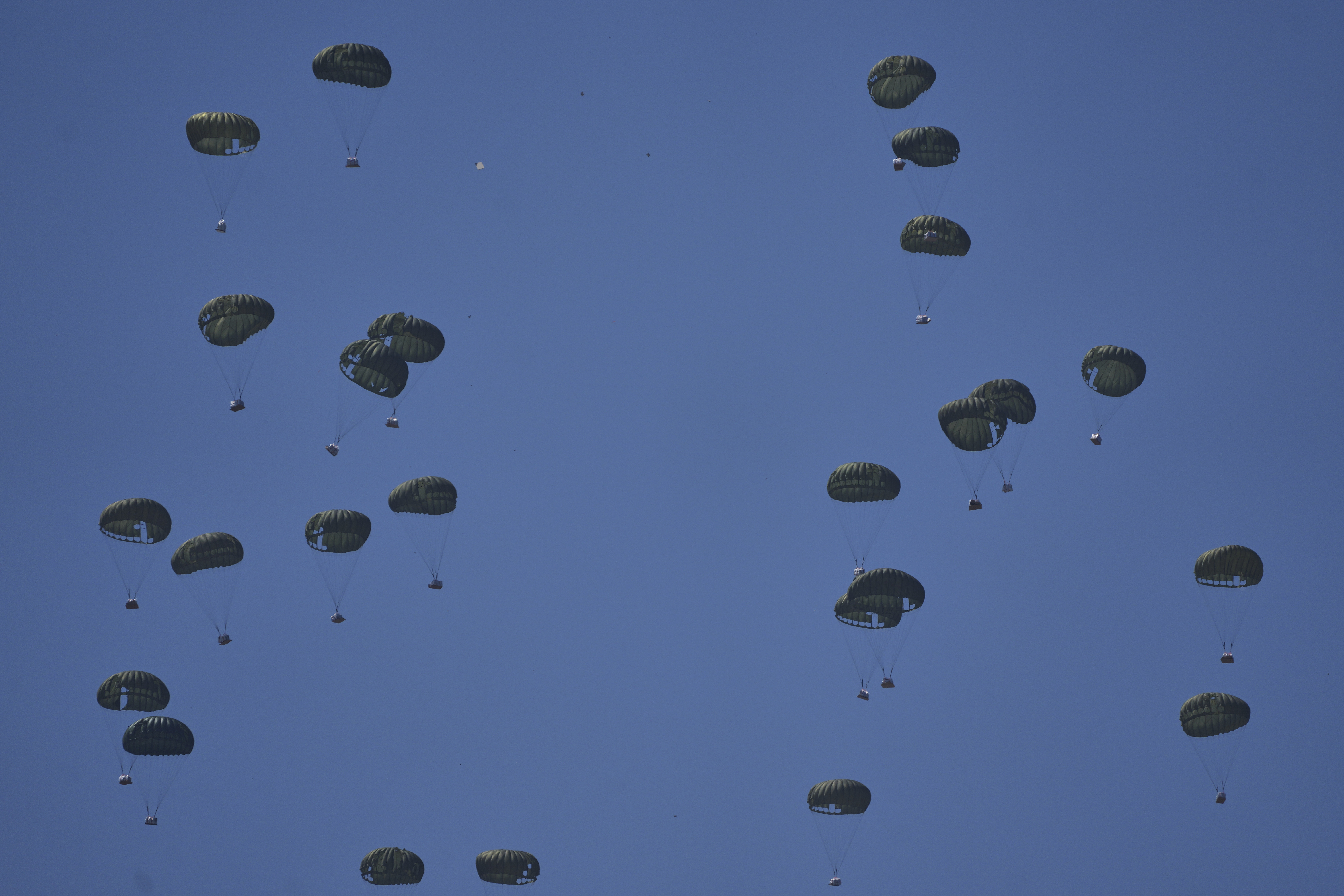
Border crossings
Palestinians in the Gaza Strip have voiced urgent calls for the reopening of border crossings to ease deteriorating humanitarian conditions, as Israel's war on the enclave has been continuing for 22 months in a row.
Since March 2, when the first phase of a ceasefire agreement between Israel and Hamas ended, Israel has tightened its blockade on Gaza, sharply reducing the entry of food, fuel, and humanitarian aid.
Speaking separately to Xinhua, local residents and officials said the restrictions have pushed the enclave's 2.3 million people closer to famine.
Many Gazans told Xinhua they now rely on limited air-dropped aid or food parcels distributed by centers affiliated with the US-backed Gaza Humanitarian Foundation (GHF).
ALSO READ: China urges alleviation of humanitarian crisis in Gaza
However, residents say these facilities cannot replace the reopening of crossings, which they view as the only sustainable solution.
Umm Yousef Salama, a 38-year-old mother of four from Al-Shati refugee camp, described how her family sometimes receives only one cooked meal per day from a nearby aid center.
"It is not enough for all of us, but at least it prevents us from going hungry for a few hours," she said. Her teenage son occasionally risks going after parachuted aid, while she spends hours waiting in queues.
"We face two bitter choices: risk our lives under the planes or stand in line for hours at the centers, and in both cases, the food is never enough," she said.
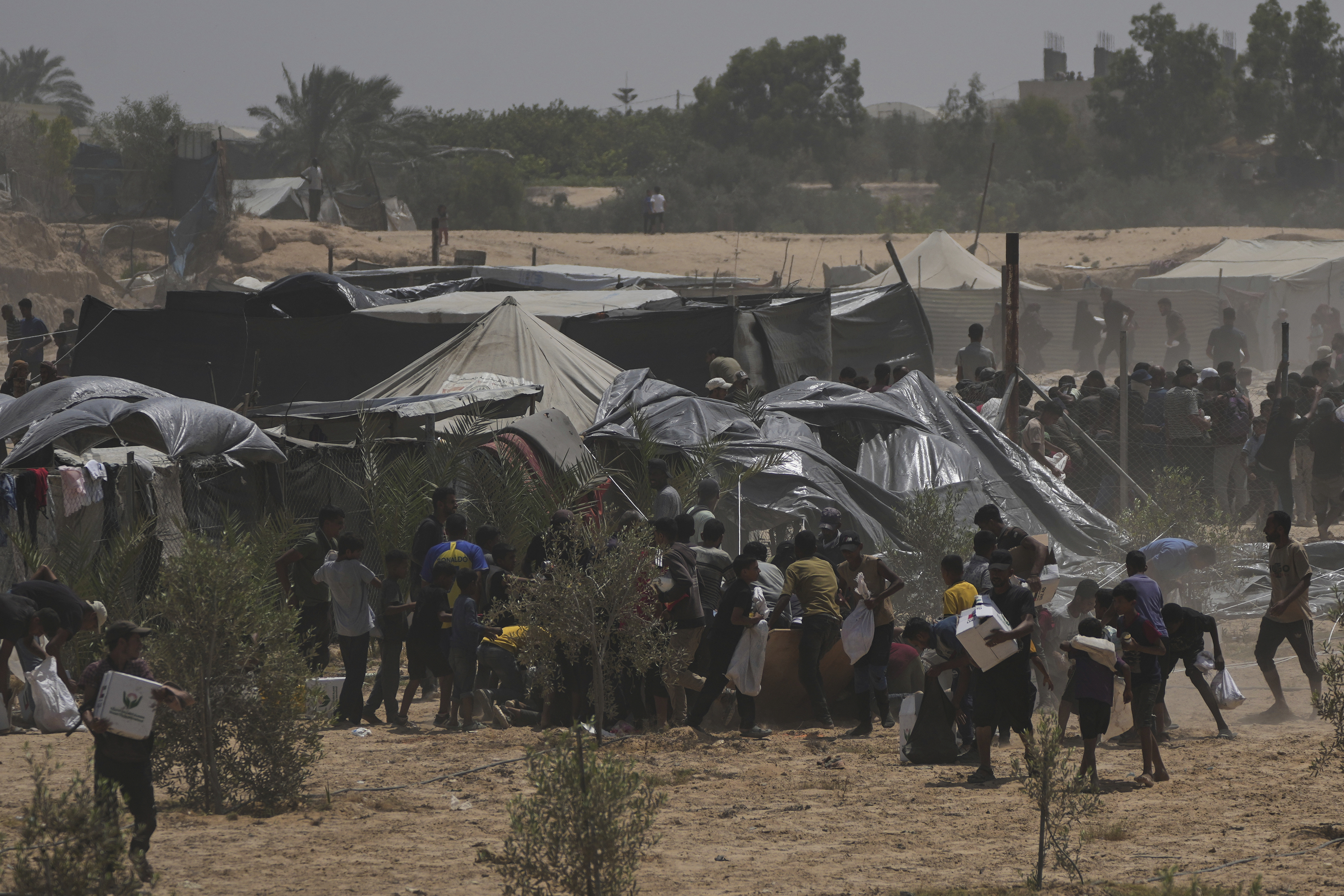
Meanwhile, health authorities in Gaza reported on Wednesday that 22 people were killed and 49 others injured in the past 24 hours while attempting to obtain food aid.
Since late May, when US-backed distribution centers began operations, at least 2,018 people have died and more than 14,947 have been injured in incidents linked to food scarcity and aid distribution, according to official data.
The authorities added that starvation- and malnutrition-related deaths have risen to 269, including 112 children, following three new deaths from malnutrition in the past 24 hours.
The closure of crossings has also prevented fuel deliveries, causing severe disruptions in hospitals, bakeries, and water stations. International organizations have sounded the alarm over the consequences of the restrictions.
ALSO READ: Israel to call up 50,000 reservists before Gaza City offensive, military official says
Ismail al-Thawabta, head of the Hamas-run government media office in Gaza, highlighted the gap between humanitarian needs and actual aid deliveries.
"Before the war, around 600 trucks entered Gaza every day, while the Strip now requires nearly 1,000 trucks daily to meet the minimum needs of a population that has been facing famine since March," al-Thawabta told Xinhua.
He said that between Aug 1 and Aug 18, only 1,937 trucks entered Gaza, averaging far below daily requirements. "This means people's suffering continues, and their basic needs for food, medicine, and fuel remain unmet," he added.
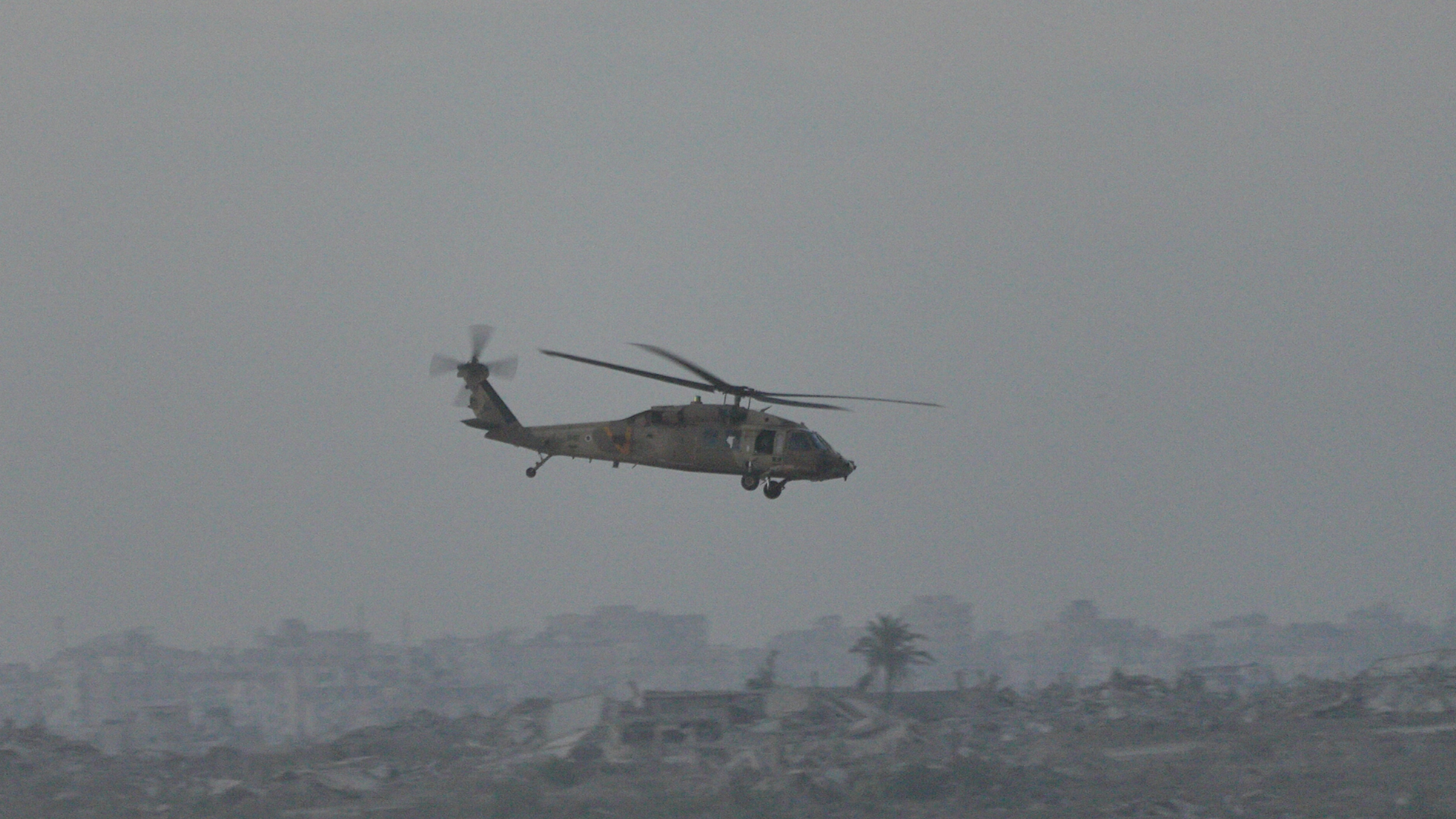
36 killed in Israeli strikes
At least 36 Palestinians were killed by Israeli forces in the Gaza Strip on Wednesday, Gaza's civil defense authority said, as ongoing Israeli operations in Gaza City sparked widespread panic among Palestinians.
Mahmoud Basal, spokesperson for Gaza's civil defense authority, told Xinhua that three Palestinians were killed in an airstrike on a house in the town of Jabalia, north of the Gaza Strip, while five others were killed when a tent sheltering displaced people was bombed in the Shati refugee camp, west of Gaza City.
Basal said that four people, including two children, were killed in a bombing of a tent near the Islamic University in western Gaza City. He added that another two children were killed in an attack on a house in the Sabra neighborhood, south of the city.
Meanwhile, Al-Qassam Brigades, the armed wing of Hamas, confirmed on Wednesday the killing and wounding of some Israeli soldiers in an attack on a military site on the outskirts of Khan Younis.
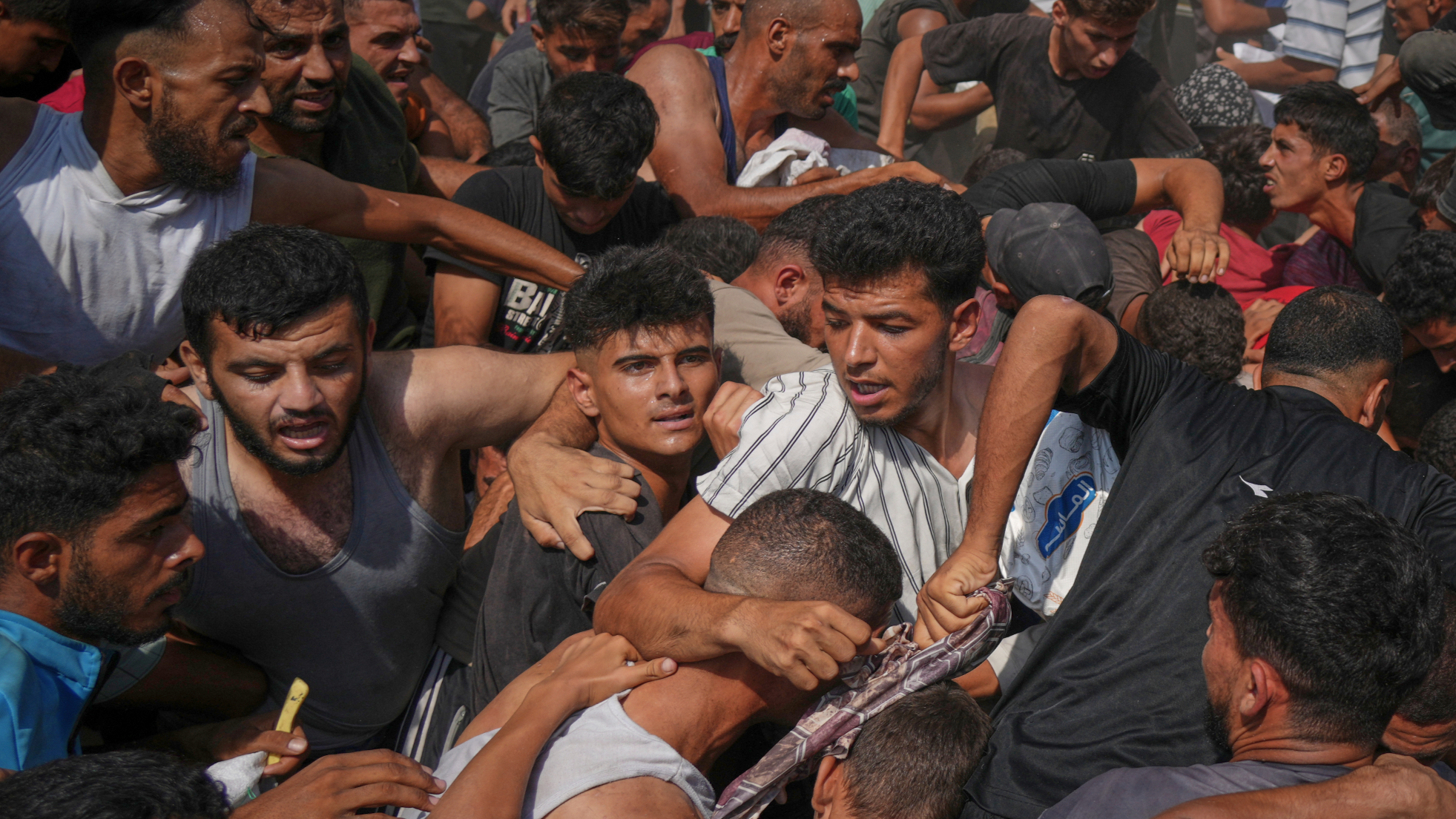
Egypt sends nearly 1,300 aid trucks
Also on Wednesday, the Egyptian Foreign Ministry said it has sent 1,288 humanitarian aid trucks into the Gaza Strip through the Kerem Shalom crossing between July 27 and Aug 17.
As many as 5,000 trucks carrying relief supplies are still waiting on the Egyptian side to enter Gaza, it showed.
Egypt has facilitated the entry of 550,000 tons of medical aid and food to Gaza since October 2023, accounting for about 70 percent of the total humanitarian assistance sent to the enclave, according to the ministry.
From November 2023 to July 2025, Egypt provided medical care for injured Palestinians, deploying 209 ambulances, hosting 18,560 wounded Palestinians and their companions, and admitting them to 172 Egyptian hospitals, according to the chart.
Sisi, Macron back two-state solution
Egyptian President Abdel-Fattah al-Sisi on Wednesday held a phone call with French President Emmanuel Macron to discuss the Gaza war, with both leaders pledging closer coordination as the conflict deepens, the Egyptian presidency said.
Sisi welcomed France's plan to formally recognize the State of Palestine in September, calling it "significant progress toward achieving justice for the Palestinian people and enabling them to obtain their full rights," according to the statement.
Macron said in July that France would extend recognition to Palestine at the United Nations General Assembly in September, making France the first major country in the West to take such a step. More than 75 percent of the UN's 193 member states have already recognized Palestine, though the United States and other Western allies have not.


